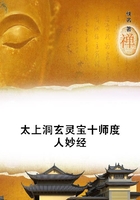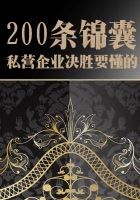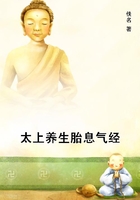When the delegates to this Convention were elected everyone supposed that their work would be submitted to a vote. The President and his Cabinet so understood it. Governor Walker so understood it and pledged his own word and that of the President that it would be submitted. A form of submission had been devised such that all men might come forward freely and vote for the Constitution and no man was permitted to vote against it. This resembled the French election when the First Consul sent the soldiers to the polls telling them to vote just as they pleased; but adding, "if you vote for Napoleon all is well; if you vote against him you will be shot."The objection to submitting the Constitution to a vote was that it would be voted down.
"Sir," he said, "my honor is pledged; and before it shall be tarnished I will take whatever consequences personal to myself may come; but never ask me to do an act which the President in his message has said is a forfeiture of faith, a violation of honor. * * * I will go as far as any of you to save the party. I have as much heart in the great cause that binds us together as any man living. I will sacrifice anything short of principle and honor for the peace of the party; but if the party will not stand by its principles, its faith, its pledges, I will stand there and abide whatever consequences may result from the position. * * * It is none of my business which way the slavery clause is decided. I care not whether it is voted up or voted down."He urged the wisdom of passing a fair enabling act authorizing the people to hold a Constitutional Convention and providing for the submission of its work to the people and the orderly admission of the State. "But if this Constitution is to be forced down our throats," he continued, "in violation of the fundamental principles of free government, under a mode of submission that is a mockery and an insult, I will resist it to the last. I have no fear of any party associations being severed; * * * but if it must be, if I cannot act with you and preserve my faith and honor, I will stand on the great principle of popular sovereignty which declares the right of all people to be left perfectly free to form and regulate their institutions in their own way."This remarkable speech was recognized by all who heard it as marking an epoch, not merely in the life of the orator, but in the evolution of party politics at a time when parties were bending in death grapple and them most portentous civil war in history was looming in the distance. The speech was a clean, powerful, dispassionate argument delivered with an air of dignity and fortitude that greatly mollified the hearts of his old enemies.
Bigler of Pennsylvania, rising to defend the President, reminded the Senate that only a short year ago Douglas had voted for the Toombs bill, which provided for the holding of a Constitutional Convention without submitting its work to the people. Douglas protested that he did not so understand the bill and challenged Bigler for evidence that a single Senator so understood it. Aremarkable dialogue followed. Bigler, who was a Democrat and a humble admirer of Douglas, said:
"I was present when that subject was discussed by Senators before the bill was introduced, and the question whether the Constitution when formed should be submitted to a vote of the people. It was held by those most intelligent on the subject that * * * it would be better that there should be no (such) provision in the Toombs bill; and it was my understanding * * * that the Convention would make a Constitution and send it here without submitting it to the popular vote."Douglas inquired, angrily, whether he meant to insinuate that he had been present at any such conference. Bigler hesitated and sought to avoid the disclosure of the proceedings at their secret caucus, but Douglas impetuously released him from all secrecy and challenged him, if he knew, to declare, that, directly or indirectly, publicly or privately, anywhere on the face of the earth, he was ever present at such a consultation when it was called to his attention and he agreed to approve a Constitution without submitting it to the people.
Bigler, who had an uneasy suspicion that he was improperly disclosing party secrets, could not decline the challenge, and replied that he remembered very well that the question was discussed at a conference held at Douglas' own house. "It was then urged," he said, "by Toombs, that there should be no provision for the submission of the Constitution to the people." He did not remember whether Douglas took part in the discussion, but his own understanding of the sense of the caucus was that the Convention should have the right to make a Constitution and send it directly to Congress for approval.
Douglas protested that he was innocent of any such conspiracy. He confessed that his attention was called to the fact that no provision was made in the Toombs bill for the submission of the Constitution, but his understanding was that, powers not delegated being reserved, it would, of course, be submitted. Bigler reminded him that, while he had taken this for granted in the case of Kansas, he had about the same time drafted a bill for the admission of Minnesota in which he took care to provide in express terms that the Constitution must be submitted. If he then thought general principles of law secured the submission of the Kansas Constitution without providing for it in the enabling act, why this care to expressly provide for it in the Minnesota act?
He was now swimming amid perilous breakers. He had thrown down the gage of battle to his party. In the twinkling of an eye he was transformed from recognized chief to a rebel; but he was isolated and unsupported. He could not consort with Republicans. The rankling wounds of the by-gone years could not heal so suddenly.
Moreover, he did not want their society. He intended to remain a Democrat and hoped to force upon his party such policies that Illinois and the Northwest would be solidly at his back. With the Democratic States of the North standing firmly with him he could still dictate terms to the South, which would have to choose between Northern Democrats and Northern Republicans.














